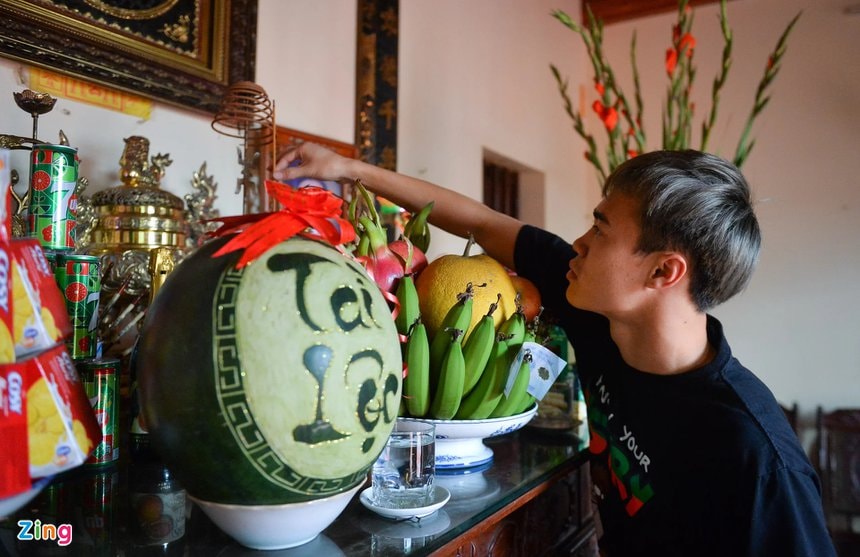What should be noted when cleaning the altar before Tet?
The altar is always the most sacred and respected place in every family. Therefore, when cleaning, especially at the end of the year, you should avoid moving or using force, or breaking objects.
According to researcher Tran Minh Thuong in the bookCelebrate Tet and celebrate Tet in the West(Ho Chi Minh City Culture and Literature Publishing House), on Tet holiday, the altar is the center of spiritual activities, the place where ancestors of the family reside.
Therefore, to celebrate the New Year, the important task is to clean the altar, replace old paintings with new ones. Incense burners and lamp stands must be cleaned very carefully.
According to folk belief, before cleaning, the homeowner needs to take a bath, then burn incense to "ask permission" from the gods and ancestors.
 |
| Be careful and gentle when cleaning the family altar. |
The order of cleaning the altar is from high to low. The ancestral tablets are cleaned first, then the incense bowls are cleaned.
When trimming and removing incense sticks, do not remove all of them, but leave 3, 5 or 7 sticks. In particular, do not throw incense sticks away carelessly because the ancients believed that doing so would "disperse wealth".
The trimmed incense sticks are usually burned and all the ashes are thrown into rivers, lakes or mixed with water to fertilize plants. They should not be dumped indiscriminately in dirty places such as trash cans.
During the process of cleaning the altar, avoid moving the statues and incense bowls. In case of unavoidable incidents that force moving, you must perform an incense burning ceremony and move them back to their original positions.
The incense burner is always placed firmly, not diagonally, not tilted in the center position, with two candlesticks on either side. The ancients paid great attention to the distance between the two candlesticks and the incense burner to be exactly equal.
 |
| Avoid moving objects from their original positions. |
In addition, the cleaner must be very careful and meticulous to avoid breakage because that is a sign of bad luck.
The altar is a sacred place, so when cleaning, absolutely do not use dirty tools. You should prepare new items such as cleaning towels and brooms.
Depending on the material of the object, you need to choose the appropriate cleaning tools. For example, when cleaning statues, you should use a soft cloth to avoid scratches and fading of the paint.
When cleaning wooden altars and ancestral tablets, avoid using high concentration alcohol or chemical alcohol to avoid damaging the varnish or lacquer or gold plating.
For bronze statues, absolutely do not use alcohol or chemicals to clean because bronze is easily oxidized and quickly tarnishes.
The water used for cleaning must also be clean. In addition, you should use warm water, instead of cold water. If there is a Buddha tablet, you must clean it first, then pour out the water, replace it with warm water, and then clean the ancestral tablet.
